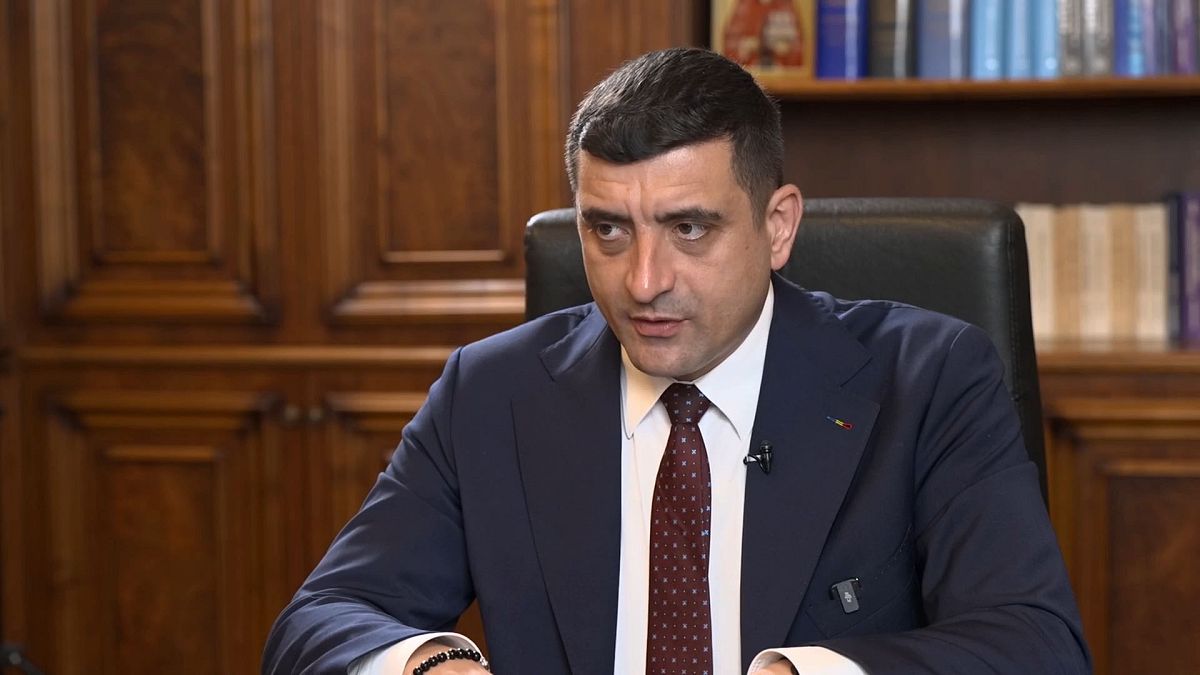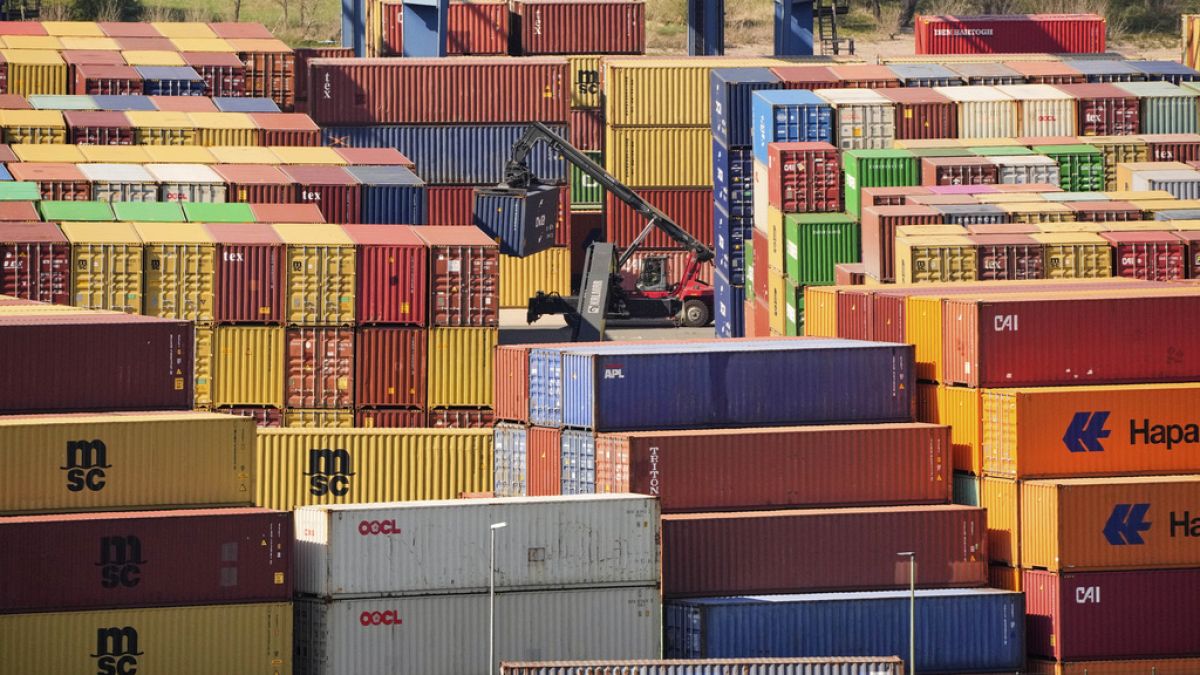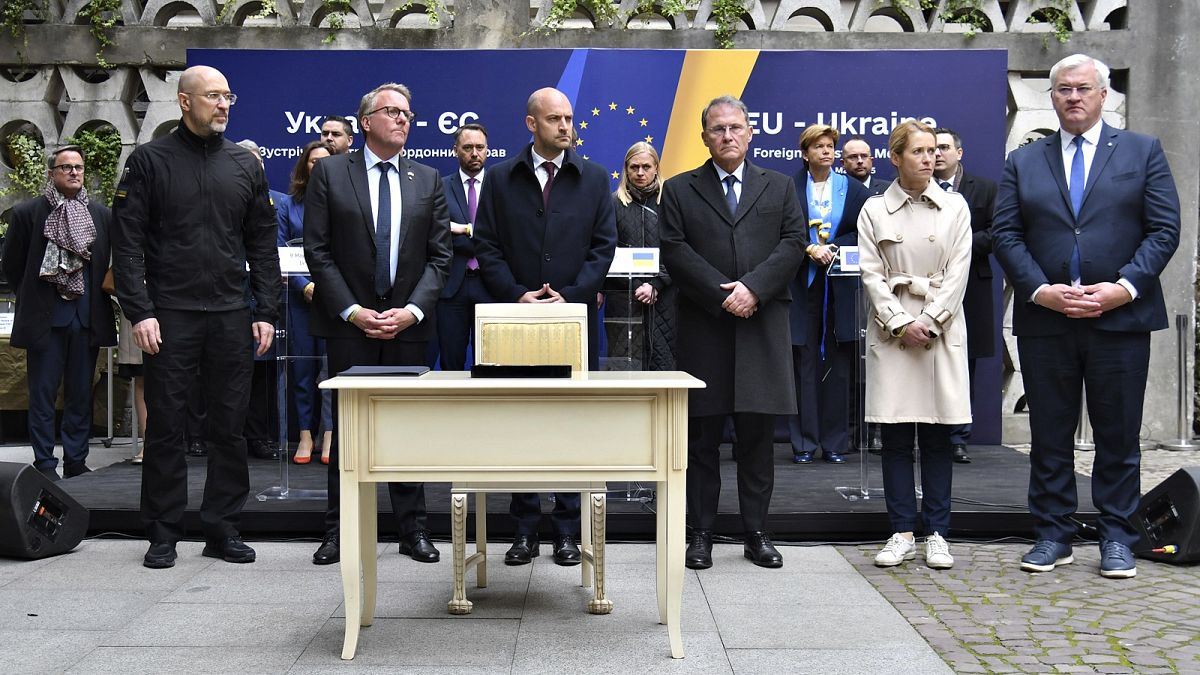The EU must not waver in its response to the imposition this week of blanket US tariffs of 20% and should inflict as much damage as possible on the US, a former head of the European Commission’s trade department has told Euronews.
“We need to take retaliatory measures that are proportionate to the damage caused by the US and inflict the maximum possible economic and political damage on the US,” said Jean-Luc Demarty, director-general of the Commission’s DG Trade between 2011 and 2019.
“If we inflict economic damage on the US, it will lead to political damage. US voters base mainly their vote on the economical situation of their country,” he said.
According to the former EU senior official, the EU must hit the US with equivalent tariffs on US goods, avoiding those the EU needs.
“We need to take action by first applying equivalent tariffs on a number of products that the Americans export to us, but of course by minimising the damage to us, which means by choosing products that are not essential and that can be found elsewhere,” Demarty said, adding: “The EU should not target US products, such as US shale gas, soy, a number of US technological products, or for instance US semi-conductors.”
He also believes that the EU will need to deploy its anti-coercion tool adopted in 2023, which allows the bloc to restrict access public procurement, and to deprive companies of rights such as IP licences.
“There is clearly coercion. Trump is denying us the ability to apply tariffs which, in some cases, are higher than US tariffs and in some cases lower. However, our tariffs are legal and comply with WTO rules,” he claimed, adding that Trump’s treatment of VAT and a number of EU regulations as effective ‘tariffs’ is also tantamount to coercion.
Services should be a prime target in the EU response, Demarty said, because the US has a trade surplus with the EU on services.
“We need to hit digital services and also financial services to damage essential American interests, both economic and political,” the former EU senior official said, “ if we hit these sectors hard enough, they [big tech and financial firms] will tell Donald Trump ‘enough is enough’.”
Demarty said US big tech and Wall Street firms carry significant political influence. “In the United States, political parties are privately funded with huge sums. So this can have a political influence.”
Demarty, who negotiated with the US during the aluminium and steel trade war under the first Trump administration, in 2018, pointed out that the US administration with which the EU must now negotiate has become more radical, making the EU’s task more difficult.
“In 2018, there were still people around Trump who were in favour of a certain openness to trade. Today, there are only half-crazy people around him who are in favour of closing markets,” Demarty said, adding: “The EU needs to hit it hard and not lie down.”













